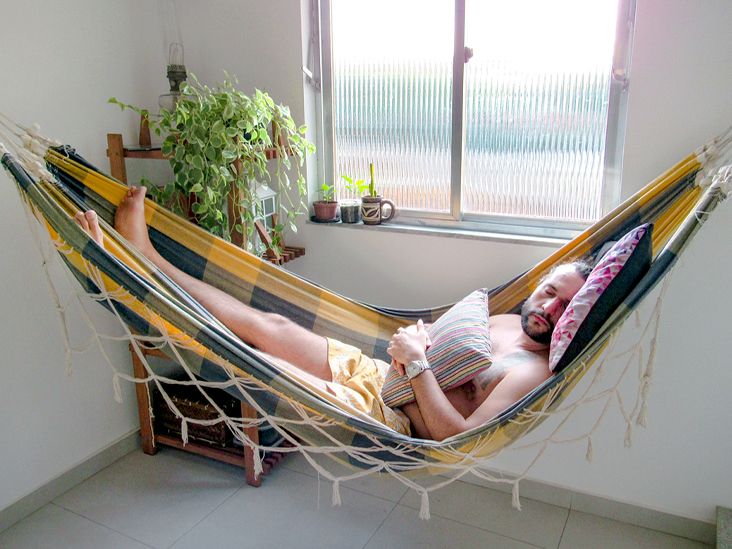Yes, fatigue can be a symptom of ulcerative colitis (UC) because of the inflammation, medication side effects, or mental strain from the chronic condition.

Approximately
The overwhelming tiredness may be the result of inflammation from the disease, a side effect of medication, or even the mental strain of living with this chronic condition.
This article will provide more information on why fatigue can happen, and what you can do about it with help from your healthcare team.
Individuals with UC may experience fatigue for a variety of reasons.
Researchers in a
- inflammation
- arthritis (a common co-occurring condition with UC)
- medication side effects
- alterations to the brain-gut axis
A
If you’re experiencing fatigue and believe that it’s related to your UC, it’s important to let your doctor know. They can help to better determine the specific factors that might be playing a role in your fatigue.
Fatigue or an overwhelming sense of tiredness that is not relieved by rest or sleep affects 80% of people with active IBD and 50% of people in clinical remission. A 2018 study also found that females experience a higher rate of fatigue from UC than men.
It can be hard to quantify feelings of fatigue, but the
- stress levels
- how active the disease is
- whether an individual has anemia or vitamin deficiencies
- medications an individual is on
- alterations to the gut-brain axis
Adrenal fatigue is a theory that high levels of stress can trigger adrenal insufficiency, a medical condition where the adrenal glands do not produce enough necessary hormones to handle things like inflammation. Fatigue is a common symptom of adrenal insufficiency.
Although it’s not yet accepted as a true medical condition, supporters of the theory of adrenal fatigue believe that when an individual is under chronic stress their adrenal glands can’t produce sufficient amounts of necessary hormones like cortisol. The lack of these hormones then triggers symptoms like fatigue.
Having UC is an example of something that can be very stressful and might actually lead an individual to have adrenal fatigue. This would then cause that individual to experience greater amounts of inflammation and tiredness.
A
While there’s currently no cure for UC, there are treatments that can help to reduce its symptoms like inflammation and irregular bowel movements.
If inflammation from your ulcerative colitis is causing fatigue, you may need to work with a rheumatologist and a gastroenterologist to determine a new treatment plan that will reduce active flare ups. Your doctors may suggest updates to your medication and diet, a new exercise plan, or even potentially colon surgery.
If the mental strain of having a frequently active chronic disease is weighing on you, you may wish to join a support group or speak with a therapist. Even if there are no options local to you, virtual therapy is available through companies like BetterHelp.
Other ways to reduce fatigue
In addition to treating underlying UC symptoms and any related health conditions, there are a variety of things you can do to help reduce fatigue. These include:
- getting regular exercise
- taking any necessary nutritional supplements
- avoiding or stopping smoking
- not taking long naps (especially later in the day)
- tracking when you feel fatigue to determine any patterns and triggers
If you have UC, it’s likely that you’ll experience at least some fatigue. This can be caused by aspects of the disease like inflammation, medication side effects, or the mental strain of having a painful chronic condition.
If you’re experiencing fatigue due to UC, it’s important to talk with your doctor about your treatment plan. Your doctor can work with you to find a plan that minimizes the symptoms of the disease and side effects from any treatments. They can also help provide referrals to support groups and therapists.





